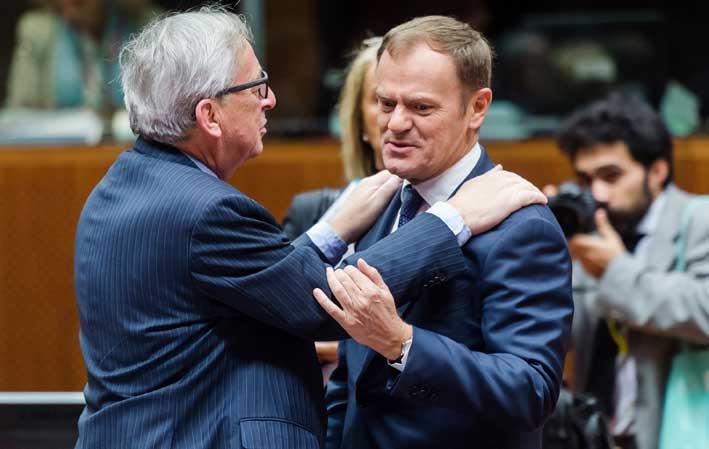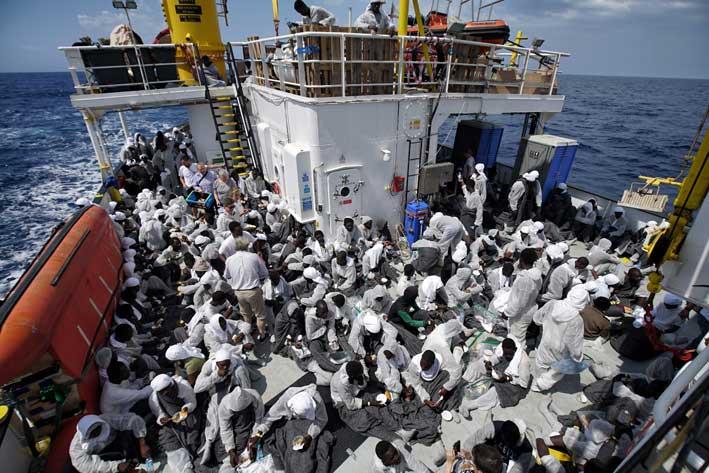Prime Minister Joseph Muscat will be in Brussels for a European Council Summit on Tuesday, the first to take place following Britain's referendum vote in favour of leaving the EU.
The British question is expected to dwarf the other topics planned to be discussed, which include migration and the EU's external relations.
While the European Union is divided on how to deal with Britain, with some wanting a quick Brexit and other preferring a more gradual approach, UK PM Cameron has said that he will be resigning and his successor will handle the EU talks, thus resulting in a stalemate. Those calling for a swift Brexit cite stability reasons as part of their decision-making process.
An EU official speaking with this newsroom explained that the first working Council session Tuesday afternoon hopes to see all topics discussed and conclusions agreed to, aside from Brexit. The Brexit question will see the referendum outcome discussed during the working dinner.

The procedure for an EU member leaving the EU surrounds Article 50 of the Lisbon Treaty. The official explained that there are two ways it can be triggered. The first is by the head of the country in question sending a formal letter to the President of the European Council, and the second by formally stating so during a Council session. EU Parliament President Martin Schultz wants Cameron to trigger article 50 at tomorrow's Summit, and EU Commission President Juncker also wants a quick Brexit. However Prime Minister Cameron has already stated that his successor will handle negotiations, thus making if highly unlikely that article 50 will be triggered tomorrow. The Guardian reported that Brussels could be reluctant to initiate informal talks with Britain on it's EU leaving process without the official exit process being initiated by Britain.
The Brexit discussions will occur during the working dinner, after the first working group. Over dinner the heads of state or government will hold discussions on the outcome of the referendum in the United Kingdom with Prime Minister Cameron. On Wednesday the 27 EU heads of state or government (excluding Britain) will meet informally to discuss the political and practical implications of the UK vote to leave the EU and start a discussion on the future of the European Union with 27 member states. Here, the official said, the countries plan to discuss how the EU could better connect to citizens.
It is possible that Cameron will bring up the subject of the EU presidency which the UK was scheduled to take over from Malta in July 2017.
During the first working group tomorrow, NATO Secretary-General, Jens Stoltenberg, will make a short presentation on EU/NATO cooperation, and the President of the European Investment Bank, Werner Hoyer, will present his initiative for the Southern Neighbourhood and the Western Balkans. Leaders will then adopt all the conclusions on migration, jobs, growth and competitiveness as well as external relations.

On migration, the European Council will continue to build on its comprehensive strategy to tackle the migration crisis. Following the decision to fully apply the Schengen Borders Code and the implementation of the EU-Turkey statement, crossings from Turkey to the Greek islands have sharply decreased. From almost 7,000 daily arrivals in October 2015 to less than 50 per day in May 2016. Leaders are expected to call for continued support to the Western Balkans countries, including in their fight against smugglers, as well as continuing vigilance about alternative routes.
It will also recall the need to accelerate the implementation of the existing relocation and resettlement schemes. Considering that flows of predominantly economic migrants remain at the same level as last year in the Central Mediterranean, discussions at the summit are expected to focus on the need to step up cooperation with countries of origin and transit. Leaders will underline the need for a speeding up of the implementation of the Valletta Action Plan and for the swift conclusion of Partnership Frameworks with a limited number of priority countries. The objectives of these frameworks would be to speed-up and increase returns of irregular migrants by using all relevant EU policies and tools in close collaboration with member states.
The effective return rates of third country nationals that have received a return decision ranged from 6% for Guinea to 34 % for Nigeria in 2015. Leaders are expected to task the EU High Representative/Vice-President of the Commission, Federica Mogherini, to take the lead in implementing this new approach, with view to concluding the first partnerships before the end of the year. Leaders are also expected to underline the need for all relevant instruments and sources of funding to be mobilised. In particular the European Council will ask the institutions to explore various possibilities for funding, including the European Investment Bank's initiative in the Southern Neighbourhood and Western Balkans countries and an ambitious External Investment Plan as proposed by the Commission. Furthermore, leaders are likely to recall that the migration crisis is a global challenge that requires a strong response from the international community.
Other topics to be discussed include jobs growth and competitiveness - with the aim of creating new jobs, promoting productivity and ensuring an attractive climate for investment and innovations. The European Council is expected to call for the completion of the different Single Market strategies by 2018. A particular emphasis will be put on the digital single market. Among other measures, leaders will call for swift progress on cross-border portability, the removal of barriers for e-commerce, the abolishment of roaming charges, spectrum assignment for the roll-out of 5G networks and ensuring high-capacity fixed and wire-less broadband connectivity across Europe.
They are also expected to endorse the country-specific recommendations.
Turning to external relations, leaders are expected to reiterate their readiness to support the Libyan Government of National Accord to restore stability, fight terrorism and tackle migration.